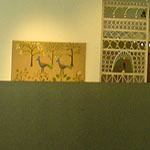Euroacademia Conferences
 Europe Inside-Out: Europe and Europeanness Exposed to Plural Observers (9th Edition) April 24 - 25, 2020
Europe Inside-Out: Europe and Europeanness Exposed to Plural Observers (9th Edition) April 24 - 25, 2020 Identities and Identifications: Politicized Uses of Collective Identities (9th Edition) June 12 - 13, 2020
Identities and Identifications: Politicized Uses of Collective Identities (9th Edition) June 12 - 13, 2020 8th Forum of Critical Studies: Asking Big Questions Again January 24 - 25, 2020
8th Forum of Critical Studies: Asking Big Questions Again January 24 - 25, 2020 Re-Inventing Eastern Europe (7th Edition) December 13 - 14, 2019
Re-Inventing Eastern Europe (7th Edition) December 13 - 14, 2019 The European Union and the Politicization of Europe (8th Edition) October 25 - 26, 2019
The European Union and the Politicization of Europe (8th Edition) October 25 - 26, 2019 Identities and Identifications: Politicized Uses of Collective Identities (8th Edition) June 28 - 29, 2019
Identities and Identifications: Politicized Uses of Collective Identities (8th Edition) June 28 - 29, 2019 The European Union and the Politicization of Europe (7th Edition) January 25 - 26, 2019
The European Union and the Politicization of Europe (7th Edition) January 25 - 26, 2019 7th Forum of Critical Studies: Asking Big Questions Again November 23 - 24, 2018
7th Forum of Critical Studies: Asking Big Questions Again November 23 - 24, 2018 Europe Inside-Out: Europe and Europeanness Exposed to Plural Observers (8th Edition) September 28 - 30, 2018
Europe Inside-Out: Europe and Europeanness Exposed to Plural Observers (8th Edition) September 28 - 30, 2018 Identities and Identifications: Politicized Uses of Collective Identities (7th Edition) June 14 - 15, 2018
Identities and Identifications: Politicized Uses of Collective Identities (7th Edition) June 14 - 15, 2018
Dream of a Borderless World: The Castaway Identity in a Vortex of Conflict
-
-

-
Presentation speakers
- Monika Gabriela Bartoszewicz, European Inter-University Centre for Human Rights and Democratisation, Venice, Italy
Abstract:
This presentation engages European converts to Islam as people who cross the river of identity. For some it is a simple process of crossing and not looking back while for others it is rather like standing over the river with each foot on a different bank. Others, however, being pushed and pulled from both sides, end up in the murky waters of uncertain belonging. Based on a fresh theoretical approach, this presentation explores the issue of a conflict identity by focusing on the Castaway archetype that has become emblematic, often being taken as representative of the whole convert community. To define this archetype in one sentence, one could say that instead of living Islam in Europe, the Castaways live Islam instead of Europe. Usually the rejection of everything that builds individual’s identity in the negative way, the rejection of everything that we are not, is based on the inexperienced strangeness: We are not what is alien to us, we are not what is different. But the case of the Castaway identity is even more complex; Castaways have an intimate understanding of the values and norms they repudiate because they have been born and brought up within the European culture which they subsequently discard and replace with values they deem as standing in stark contrast to those of Western civilization. It is this also which gives such a poignancy to Castaways’ pent-up hatred for their own past and serves as an enabler of radicalisation on the fertile grounds of rejection and exclusion and finds relief in a framework of Islamic discourse that is adjusted to this need. Since their whole existence is attuned towards confrontation with ‘the Other,” Castaways epitomize a conflict identity that inexorably leads towards violent and non-violent (ideological) clashes. Thus, the presentation elucidates how the tandem of rejection and exclusion trigger dynamics whereby a desire for a borderless world results in perpetual reaffirming of existing divisions.
-
Related Presentations
















